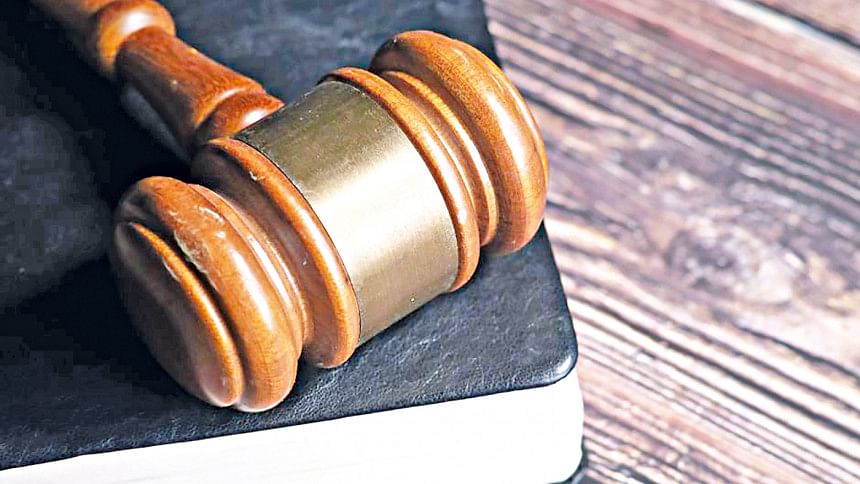Ensuring fair trials in Bangladesh

Any justice system must have fair trials as a cornerstone, ensuring that each individual receives the same impartial treatment while in conflict with the law. Articles 27 and 31 of the Constitution of Bangladesh upholds the concept of fair trial. Nevertheless, there are several obstacles that hamper the execution of justice when these concepts are put into practice.
A major concern is the overburdened judiciary. By 2023, there will be over 3.7 million cases still waiting, making it very difficult for the justice system to provide timely justice. Prolonged pre-trial detentions, as well as greater financial and emotional strains on litigants, may result from procedural delays. Due largely to this backlog, people's right to a fair trial gets routinely violated.
Moreover, securing competent legal representation continues to be a serious struggle, especially for the socioeconomically disadvantaged citizens. While the Legal Aid Services Act, 2000 provides for free legal aid, the system remains underfunded and hence inaccessible to a vast swathe of people. Consequentially, the marginalised groups are often without access to adequate representation fuelling miscarriages of justice. The legal system suffers from corruption as well, further undermining the fairness of trials. Corrupt practices undermine public confidence in the judiciary and often distort the outcome of trials in favor of the wealthy, powerful and/or political elites.
Another obstacle to fair trial is the manner in which investigations are carried out. In Bangladesh, law enforcement agencies are often accused of fabricating evidence, obtaining forced confessions through torture, and conducting investigations that are neither thorough nor neutral. Along with that, there are insufficient forensic facilities and trained personnel, which makes it more difficult to deliver justice based on reliable evidence.
These challenges can be solved in different ways. To begin with, managing the backlog could be achieved by increasing the number of judges, improving case management systems and establishing specialised courts for specific types of cases. In addition, enhancing outreach of its free legal aid mechanisms and augmenting the resources for the Legal Aid Services Act may help under-privileged citizens access justice better. Furthermore, investing in advanced forensic facilities and enabling police to properly gather evidence and conduct fair investigations can lead to trials of a better standard. Finally, independent oversight authorities must be put in place to investigate corruption allegations within the judiciary and by the law enforcement agencies.
Upholding the rule of law and maintaining public trust in Bangladesh's justice system depend mostly on ensuring fair trials. Even though the obstacles are substantial, they are not insurmountable. By working together, the government, judiciary, and civil society can establish a more efficient and equitable judicial system, which will bring the nation closer to the principles enshrined in its Constitution.
Alph Imran Chowdhury
Law student at London College of Legal Studies (South)

 For all latest news, follow The Daily Star's Google News channel.
For all latest news, follow The Daily Star's Google News channel. 



Comments